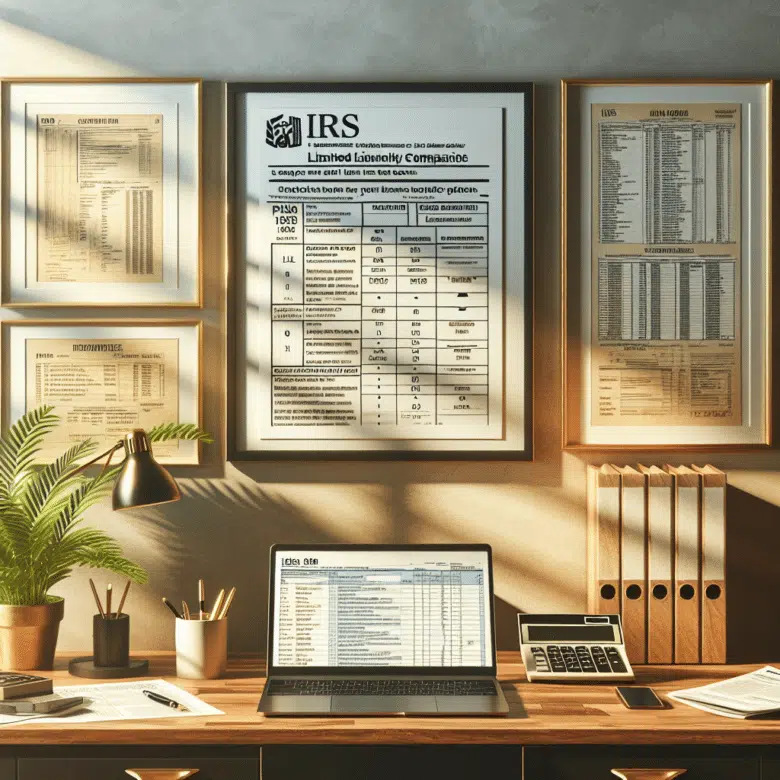In the realm of financial management, one significant rule stands out: keeping your personal and business transactions separate. This practice is not just a matter of preference but a fundamental requirement for ensuring financial clarity and compliance. The mingling of personal and business finances can lead to a myriad of complications, such as inaccurate financial statements, challenges in tracking expenses, and even potential legal issues. By maintaining distinct financial boundaries, you secure the integrity of your business’s financial data and simplify the process of preparing taxes.
Understanding the importance of this separation is the first step towards achieving financial organization and health for your business. It allows for better monitoring of business performance, facilitates easier audits, and aids in building a credible financial history that can be crucial for future financing or investment opportunities. Moreover, having a clear demarcation between personal and business expenses helps in maintaining a transparent and accountable financial system.
To embark on this journey of financial tidiness, it is essential to establish a robust framework that distinguishes personal and business transactions. This article will guide you through the critical steps to achieve this separation effectively.
Akron Income Tax Co is committed to providing income tax preparation services at reasonable fees. For more information, visit our website at apc1040.com.
Benefits of Keeping Transactions Separate
Maintaining a clear distinction between personal and business transactions is not just a procedural necessity; it offers a multitude of tangible benefits that can significantly enhance your financial management. One of the primary advantages is the ease of financial tracking. By having separate accounts, you can effortlessly monitor your business income and expenses, leading to more accurate financial records and better-informed business decisions.
Another key benefit is improved tax compliance. When business transactions are distinct from personal ones, it simplifies the process of preparing taxes, allowing you to identify deductible business expenses more easily and reducing the risk of errors that could trigger an audit. Keeping original receipts is required. Moreover, it provides clear documentation that can support your claims in case of any inquiries from tax authorities.
Additionally, separating transactions helps in establishing business credibility. Financial institutions and investors often look for well-organized financial records as a sign of a responsible and trustworthy business. This separation demonstrates professionalism and can be a critical factor when seeking financing or investment opportunities. Furthermore, personal liability protection is enhanced, particularly for incorporated entities, where separating accounts can help maintain the corporate veil and protect personal assets from business liabilities.
Overall, the practice of keeping personal and business transactions separate is a strategic decision that supports financial clarity, compliance, and growth, serving as a foundation for sound business management.
Tools for Managing Business Finances
In today’s digital age, managing business finances has been made significantly easier with a plethora of tools designed specifically to cater to the needs of business owners. These tools not only help in keeping your personal and business transactions separate but also streamline financial management processes.
One of the most popular categories of tools is accounting software. Solutions such as QuickBooks, Xero, and FreshBooks offer comprehensive features that allow you to track income and expenses, generate financial reports, and manage invoices. These platforms are particularly beneficial for small to medium-sized businesses looking to maintain accurate financial records.
For those who need an extra layer of financial insight, budgeting and forecasting tools like PlanGuru or Float can be invaluable. These applications help in planning future financial scenarios, managing cash flow, and setting financial goals by analyzing historical data.
Additionally, using a dedicated business bank account is crucial for keeping transactions distinct. Many banks offer specialized business accounts that come with features like integrated payment solutions and real-time transaction tracking, which further simplify financial management.
Lastly, don’t overlook the importance of mobile banking apps that facilitate on-the-go financial management. They provide convenience and flexibility, allowing you to manage your business finances anytime, anywhere.
By leveraging these tools, businesses can not only maintain the separation of personal and business finances but also gain critical insights that drive financial health and operational efficiency.
Steps to Separate Personal and Business Finances
Establishing a clear demarcation between personal and business finances is essential for every entrepreneur. By following a structured approach, you can ensure both financial clarity and compliance, which benefits your business in the long run.
1. Open a Separate Business Bank Account: The first step is to open a dedicated business bank account. This will help you manage business transactions separately, providing a clear view of your business’s financial health. It also simplifies tax filings, as all business-related income and expenses are in one place.
2. Obtain a Business Credit Card: A business credit card is another effective tool for keeping personal and business expenses separate. It not only aids in building your business credit but also provides a detailed record of business expenditures.
3. Implement a Robust Accounting System: Utilize accounting software to track all financial transactions. This will ensure that every dollar is accounted for, reducing the risk of mixing personal with business expenses.
4. Pay Yourself a Salary: Establish a fixed salary for yourself. This practice not only helps in maintaining financial discipline but also ensures that your personal finances are independent of business cash flow fluctuations.
5. Document Everything: Keep detailed records of all financial transactions and agreements. Proper documentation guards against any potential IRS scrutiny and simplifies auditing processes.
By methodically implementing these steps, you ensure that your business finances remain distinct from personal funds, providing a foundation for financial integrity and business growth.
Common Mistakes to Avoid
Even with the best intentions, business owners can inadvertently mix personal and business finances, leading to financial complications and compliance issues. Understanding these common pitfalls can help prevent them.
1. Using Personal Funds for Business Expenses: It might seem convenient to pay for business expenses with personal funds, especially in a pinch. However, this can complicate financial records and blur the lines between personal and business finances. Always use your business account or credit card for business-related expenses.
2. Neglecting Proper Documentation: Failing to keep accurate and detailed records of transactions can lead to significant issues during tax season. It’s essential to maintain thorough documentation, including receipts and invoices, to ensure financial transparency.
3. Not Paying Yourself Consistently: Some business owners dip into business funds irregularly for personal use. This practice can disrupt cash flow management and make it difficult to track personal income. Establish a regular, consistent salary to mitigate this issue.
4. Combining Personal and Business Expenses: Mixing expenses can not only make bookkeeping a nightmare but also raise red flags during audits. Clearly categorize and separate expenses to maintain clarity.
5. Overlooking Tax Obligations: Forgetting to set aside money for taxes or failing to file correctly can result in penalties and interest. Stay informed about your tax obligations and ensure timely payments and filings.
Avoiding these common mistakes helps maintain financial order, ensuring your business runs smoothly and remains compliant with legal requirements.
Conclusion and Best Practices
In conclusion, maintaining a clear distinction between personal and business transactions is not just a best practice—it’s a necessity for any successful enterprise. **Separating these finances** ensures transparency, simplifies tax preparation, and safeguards your business against potential audits. By adopting the strategies discussed, such as maintaining separate bank accounts, diligent record-keeping, and consistent accounting practices, you can avoid the pitfalls that often trap business owners.
**Best Practices to Consider:**
- Regularly review your financial statements to catch any discrepancies early.
- Invest in reliable accounting software that can automate and streamline the bookkeeping process.
- Consult with financial professionals for expert advice tailored to your business needs.
- Establish a clear budget for personal and business expenditures to prevent overlap.
By integrating these practices into your daily operations, you can ensure financial clarity and stability for your business. Remember, taking the time to properly manage your finances now can save you from significant challenges down the line.
Akron Income Tax Co is committed to providing income tax preparation services at reasonable fees. To learn more about how we can assist you, please visit our website at apc1040.com.








